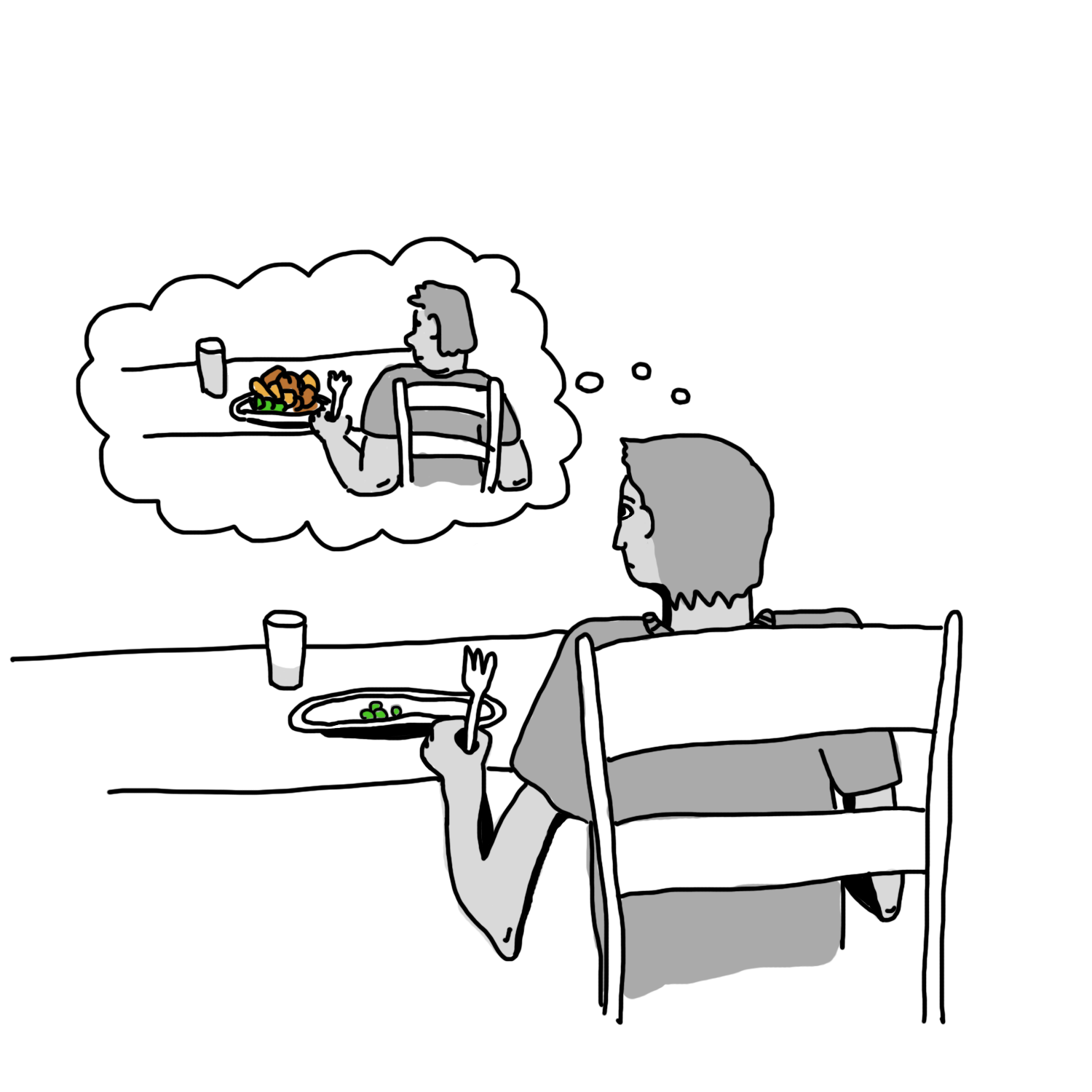Debunking stress eating: Tis’ the season of midterms and takeout
Midterm season is officially here, and stress is creeping up on many students. Although people respond to stressful situations differently, a lot of us have a common struggle: stress eating.
Emotional eating can happen for a variety of reasons, but this week we will specifically analyze stress as a cause.
When your body is put under prolonged stress, a multitude of physiological changes happen, namely, your body releases a hormone called cortisol.
Cortisol plays a key role in human survival—think about it from an evolutionary standpoint. Your body registers stress as a “fight or flight” situation. When your body thinks it’s in a life or death situation, it “panics” and urges you to consume calories for strength and survival, when really, all you need is a deep breath.
Needless to say, exam period is a stressful time. Seeking refuge in the glory of pizza or greasy fries when the workload gets overwhelming is something a lot of us can relate to.
While this may provide momentarily relief—due to the release of other hormones like dopamine—the underlying cause of your stress still remains.
Additionally, feelings of guilt about eating too much may enter into the equation and end up adding to your initial stress.
But how can you tell the difference between being actually hungry or just feeling stressed?
There are a few telltale signs. Here are the most important ones:
- We usually turn to comfort foods or unhealthy foods when we are stressed. Let’s just say cauliflower and broccoli aren’t the food of choice when cramming for an exam.
- According to Harvard Health, consuming comfort food triggers two changes in the brain. First, it stimulates the reward centre of the brain by releasing feel-good hormones. Second, it has been shown to temporarily counter the effects of the stress-producing and processing hormones. So not only does comfort food provide a “happy fix,” but it also temporarily takes the stress away.
- According to American pediatrics doctor Dr. Mary Gavin, and many other experts, contrary to stress cravings, physical hunger isn’t instant. It takes time for the digestive system to process food.
- According to the National Center for Biotechnology Information, when you feel physiological hunger, it’s due to the gradual release of the hunger hormone, ghrelin. Ghrelin itself is released over time, thanks to “feedback” provided by sensory nerve endings in the digestive tract, including the intestine and colon. So if you suddenly have a “need” for a bag of chips, take a second to reflect on how stressed you are in that moment. You might just need to relax and take a deep breath.
Here are a few things you can do to help combat stress eating during exam time:
- Get moving. Exercise releases endorphins so hop to it. Physical activity also releases those feel-good hormones and it gets fresh blood flowing to the brain, making you feel more awake.
- Drink a lot of water, regularly. Dehydration oftentimes manifests as hunger. Staying hydrated helps keep your body healthy and your brain active.
- Call a loved one or a friend—but make sure you don’t end up talking about studying or exams. The aim here is to take your mind off all the stress by hearing a familiar voice and maybe cracking a joke or two. Tell the person in advance that you don’t want to be talking about school.
Fardad is a science student here at Concordia. He wants to share his research and learning about the science field with the Concordia community.
Graphic by Thom Bell




